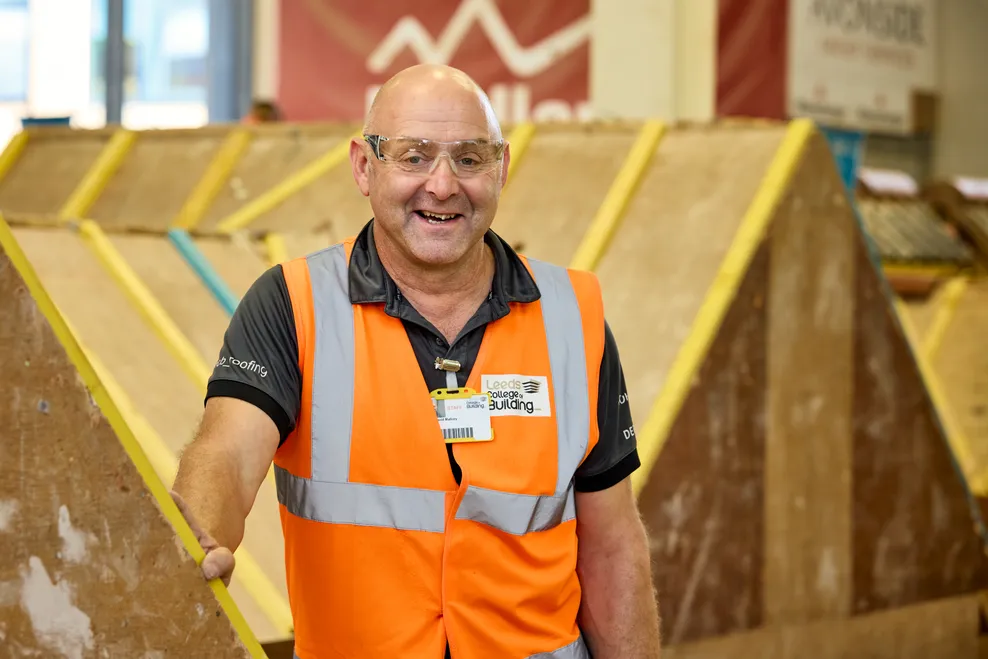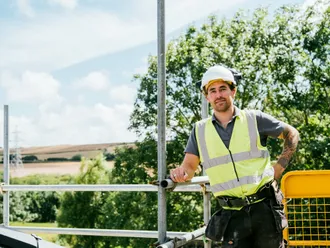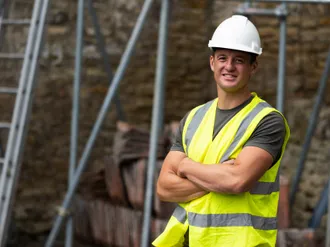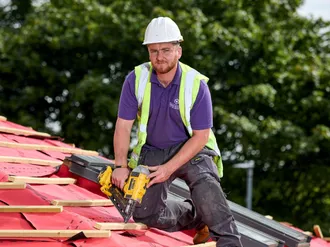Our country pages
Africa
Europe
Search
Training In The Time Of Covid

The Story
The year ahead looks promising so far as David Mallory is concerned. He and his colleagues have adapted to a new way of working as a result of the pandemic, and learn new online skills for teaching which has seen student numbers increase – even though the college part of their apprenticeship has been cut from three years to two. David and his students are particularly looking forward to the return of the BMI Apprentice of the Year competition.
“Effectively, we’ve increased recruitment. Both last year and this year we’ve recruited three first-year groups, 54 apprentices, David says. “A lot of companies that have used us before are not only returning to us but sending us more students. The numbers are going through the roof”
Despite the number of apprentices going down nationally, at Leeds the college has a healthy number of apprentices enrolling this year, David says. “We don’t simply recruit locally,” he explains. “We’ve got students coming to us from Wales, Somerset, Salisbury, London – everywhere.”
“There certainly seems to be a shortage of apprentices coming through even though we’ve got good numbers at the college,” says David. “Nationally, it seems there are more roofers leaving the industry than are joining as apprentices.”
And that is one of the objectives of the BMI Apprentice of the Year (AOTY) competition, in David’s view. “It opens their eyes to what they’re capable of,” he says. “It gives them belief in themselves. The conversations that we have when we go down to the finals of the competition are so different from on the way back. On the way down ‘it’s all panic and worry, I won’t get anywhere’ but coming back up it’s ‘that was great’”!
“I encourage all our apprentices to enter the competition because, if they get through to the shortlist, they’ll mix with other apprentices from all over the country.”
For employers too, the competition is a win-win, David argues. “Those that are successful can be driving forces in the business, with the skills and attitudes to go further and become site managers and contract directors. It’s true that some will leave and set up their own business but, frankly, every intake of students I’ve ever taught has students who want to do that. But not all of them. For many it will be 10 or 15 years, because it’s a big step and it’s not for everyone.”
The competition is just one of the ways in which BMI UK & Ireland supports the work of the building colleges in training the next generation of roofers. It also supplies materials from its extensive range of roofing systems while the company’s expert training staff has a programme of courses on various aspects of roofing.
This year’s intake of students will benefit from the college’s experience of teaching during Covid, which was a steep learning curve for everyone involved.
“We used everything we could – Teams (an online app for meeting), WhatsApp, sometimes FaceTime. In a college setting I can see what everyone’s up to and adapt what I’m doing to make sure that everyone gets the point – you can’t do that online,” David says.
For a start the classes had to be broken down from 18 to groups of four or five, so he could see everyone. Then, instead of one class at a time, David would go over the same lesson three or four times throughout the day, giving each student a time slot at which to attend. Not that this solved every issue, he admits.
“It was more manageable, but you still have problems. Checking the learning is taking place and seeing what’s going on was still difficult. One lesson, one guy was still in bed doing the lesson. Other days, all you’d see is the lampshade on screen and you’d have to ask, ‘Are you actually there?’”
To see if the lessons had been learnt, despite these difficulties, was also problematic. David would put the tests on-line, with the idea that students would answer the questions in real time, so he could observe them and step in and guide them when necessary. Some students, though, would download the tests to their own machine and answer them on that, effectively barring David from seeing how they arrived at their answers or giving any support.
Site visits were also restricted by the travel ban during the Covid lockdown. The students and teachers might have been key workers but due to our risk assessment and government travel restrictions we couldn’t travel, so there was no scope to see how they fared on-site.
Yet David discovered that mobile technology was a great tool for checking on students’ welfare, WhatsApp in particular. David invited all his students to form a WhatsApp group and found that they reacted to this very well, encouraging and helping each other.
“When someone posed a question, or was stuck on a question, I would go on (WhatsApp) to guide them but I found that other students were doing that before me. So I thought I’d leave it an hour and only then, if no one had come up with the answer, would I get involved.”
The experience of using WhatsApp proved so positive that it is now part of the standard procedure at the college, with all students in WhatsApp groups to keep everyone in contact at all times.
So the experience of the pandemic has left David and his colleagues in a stronger position than before, despite the difficulties that lockdowns, social distancing and self-isolation impose.


